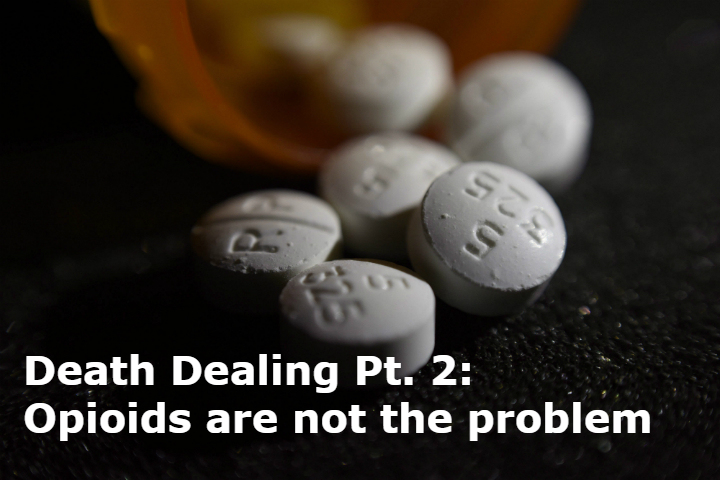As officials with the Middlesex-London Health Unit pursue a location for a supervised drug consumption site, reporter Liny Lamberink takes an in-depth look at opioid use in London, Ont., in part two of our Death Dealing series.

Embedded inside the Regional HIV/AIDS Connection in London is a space that’s trying to improve the quality of life for people who use drugs.
The temporary overdose prevention site at 186 King St. is the first of its kind in the province, offering people who inject drugs a clean space and sterile equipment to get high. A nurse on site carries life-saving naloxone in case of overdose, and can also connect people with other support services.
LISTEN: Part 2 of Death Dealing, a look at opioid use in London, Ont.
But this site, and a more permanent supervised consumption site that’s still in the works for London, has never been considered a silver bullet.

Get breaking National news
“If we really want to be kinder people, if we really want to value all life, then how do we go about structuring our community in a way that encourages that?” asks Daniel Oudshoorn, a London man with more than 20 years living and working among communities experiencing poverty, oppression, and drug-use.
“Because right now, it’s really easy to be death dealing.”
Oudshoorn argues the criminalization of drugs, and decisions that prevent affordable housing for people living in poverty, are “death dealing” structures that society has moralized, which are problematic.
“People die because of those laws, and it’s all taken for granted because again, what are the core values of our community?”
An outreach worker, whose identity 980 CFPL is protecting, says there needs to be a bigger focus on true, meaningful, human relationships.
Thomas (not his real name) argues that those relationships — which go beyond service-based interactions between an outreach worker and a person using drugs — are the best way to get people out of addiction.
“If you’re able to give anybody 10 people to care for them unconditionally … anybody, no matter how f**ked up it is, would be able to get out of any situation,” Thomas says.
Share your stories of how opioid use has affected you via the form below or on Twitter using the hashtag #DeathDealing. Your submission may be used in our future coverage. However, Global News won’t share your name and contact information without your permission.












Comments
Want to discuss? Please read our Commenting Policy first.